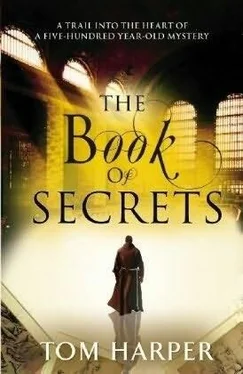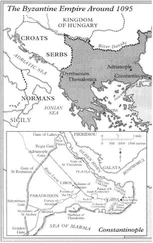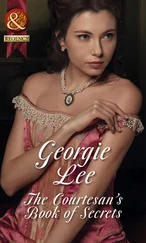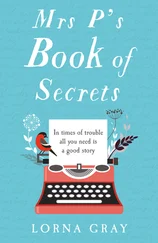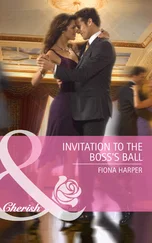‘Where now?’
‘Strasbourg,’ said Emily confidently.
They were still driving through the suburbs: grey, foursquare houses built in four-square grids. The heating was losing its battle against the cold air blowing through the glassless window, but even that was barely keeping Nick awake any more. He felt numb, his eyes like concrete.
‘Because that’s where the bestiary came from?’
‘And therefore where Gillian’s most likely to have gone.’
‘You don’t know that. She was probably way ahead of us. If she figured out what the Sayings of the Kings of Israel meant, she could have gone anywhere.’
‘True. But the only place we know she could have gone is Strasbourg. And before that, I suggest we find alternative transportation. Driving around in a car we’ve stolen from a gang of murderous thugs seems a sure way of guaranteeing a short trip.’
‘We can’t just walk into Avis,’ said Nick sourly. ‘The police know all about me already – and now they’ve got that bloodbath in the warehouse to pin on us as well. Atheldene’s probably told them everything. Pretty soon, we’re going to be the hottest property in Europe. We-’
‘For God’s sake look out!’
Emily grabbed Nick’s arm. His eyes jerked open – he hadn’t even felt them close. Adrenalin ripped through him as he saw he’d drifted halfway across the street – straight into the path of an oncoming Volkswagen. Nick jerked the wheel and tried to hit the brakes. Instead, he slammed his foot on the accelerator. The big car leaped forward and right, just missing the swerving Volkswagen. Nick turned the wheel back. The car straightened abruptly – but kept going round as the tyres lost all grip on the frozen road. Emily screamed. Nick spun the wheel and jammed on the brakes; the car shuddered as the ABS kicked in but didn’t stop.
It was all over in an instant. The car spun across the road, round 180 degrees, and banged into the kerb. They both sat there in stunned silence. From an adjacent garden, a little girl in a woollen hat looked over the fence in astonishment.
‘I think we’ll take the train,’ said Emily.
Strassburg
Andreas Dritzehn wanted me to like him. He had spread his table with venison, capons, jellies and sweetmeats. He flattered my new coat, which was second hand, and laughed if he even suspected a joke. He pressed me with wine, which he served himself, though there were many servants on hand to pour. I was quite willing to oblige him. He wanted to give me a great deal of money.
I made him wait. I refilled my plate and my glass often. I discoursed energetically on the weather, the harvest, progress on the cathedral, Paris. I was a delightful guest. Kaspar, across the table, said little. His spirits burned like a candle: they could be snuffed out in an instant. If my attention was deflected even a degree away from him, he became sullen and withdrawn.
At last the plates were cleared, the servants dismissed, the women dispatched to their chambers. Dritzehn threw another log on the fire and leaned closer.
‘Tell my about your mirrors.’
*
Like many ideas, it had been born of necessity. In this case, necessity took the guise of two men who one afternoon visited my house in St Argobast. Working in the forge, I did not see them arrive, or notice anything until one announced himself by rapping his cudgel on my shoulder. It was not a friendly tap, but a heavy blow that left my arm numb. I dropped the ladle with a howl. Boiling metal slopped into the fire, setting off a noxious steam that stung my eyes. I almost tipped the entire crucible over my legs. Weeping and choking, I turned around to meet my visitors.
One was the man who had hit me. If ever a man’s face bespoke his character this was it. His right eye, left earlobe and left arm were missing – though to judge by the knock he had given me, enough strength remained in his right arm for two. His nose had been broken so many times it looked like a sack of rocks; his lips, bared in a sneer, looked permanently bruised.
The other man stepped out from his considerable shadow. It was Stoltz, the moneylender.
‘We were supposed to meet yesterday to discuss your debts. You did not come.’
‘I forgot.’
The one-armed man made another movement. Still blinking back tears from the pain and fumes, I did not see it clearly. All I felt was another explosion of agony, this time in my knee. I dropped to the floor.
Stoltz stood over me. ‘You would be astonished, in my line of work, how forgetful men become. It is as if lending a man gold instantly addles his wits. Fortunately, my memory does not suffer this defect.’
He reached into the bag on his belt and pulled out a small notebook. I remembered the clerk in the Mainz mint with his enormous ledger, the all-knowing book from which my theft could not be hidden. I trembled.
‘Three months ago I loaned you fifty gulden.’
This was worth another blow, this time to my arm. I rolled over on my side. Stoltz stood over me.
‘Some men find money a strange abstraction. It flows from man to man and from country to country and knows no boundaries. In a single day it can go from the hands of a king to the hands of a beggar and back again. But in truth, money is very simple. It is a tool, just as a pair of bellows or a plough are tools. And within that tool lies an inherent utility. This we call value.’
A kick in the ribs. I covered my face with my hands. Nothing destroys a man’s credit so quickly as a mask of bruises on his face.
‘If I lend you a plough, its value is that it can improve your field to make it more fruitful. For that, you pay me. Likewise if I lend you fifty gulden, you pay me for the use of it. For the use of this money, you were to pay me five shillings a month.’
Two swats from the cudgel contorted my back in agony.
‘You have already failed to deliver the last month’s payment. Now I hear that the surety you gave me for the loan – the dowry of the girl Ennelin – turns out to be worthless. You have broken off your engagement to her.’
‘Her mother tricked me,’ I pleaded.
‘Then more fool you. I will not be left with the bill. By breaking the engagement you have forfeited your collateral. Under the terms of our agreement, I am entitled to claim back the entire loan immediately.’
‘I cannot pay.’ The money had barely touched my hands as it passed through them – some to Dunne and various suppliers, but most to pay off other loans that had fallen due.
‘Then I shall ruin you.’ Stoltz nodded to his henchman, who swung the cudgel underarm against the sole of my foot. I screamed. ‘When Karl has finished with you I will set the courts on you.’
‘Please. Please God.’ I scrabbled to get away from the brute. He let me, like a bear handler letting out the leash. I could not go far.
Desperation loosened my tongue. ‘I have invested it in a great labour. One that, God willing, will make me rich. If you ruin me now you will get nothing, pennies for gulden. If you wait I can repay you everything.’
Stoltz said nothing – but there was no movement from Karl. I took this as an invitation to continue.
‘I am devising a new art, one that will make me rich.
‘What is it?
‘You spoke of ploughs and fields. Imagine this is a plough which could make fields give up ten times as much wheat.’
‘Explain.’ Stoltz had no time for riddles. Karl stepped closer and stroked my ribs with the tip of his cudgel.
But I could not say it. Even then – bleeding, bruised and with the promise of worse to come – I could not. It was my secret, incomplete though it was. If every man knew it, there would be no advantage. I had to cling on.
Читать дальше
